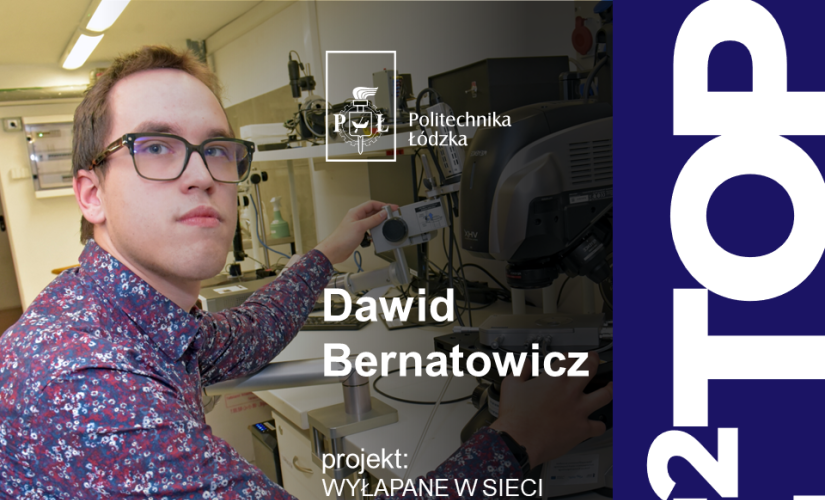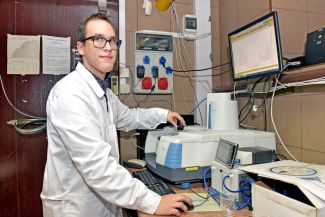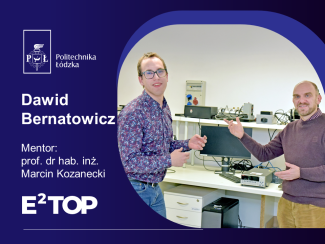How is your research going?
It started with an in-depth analysis of the scientific literature on hydrogels, their properties, and synthesis methods. After gathering and assimilating the necessary information, I moved on to the practical part, focusing on the synthesis of gels. I decided to use the photopolymerization technique, which allowed me to precisely control the gel formation process and its final properties.
Then I proceeded to the stage of detailed analysis of their stability. This was crucial to ensure that the gels reached a final, stable mass. After that, I conducted the key lyophilization process for further stages.
photo by Jacek Szabela
The next step was immersing the prepared gels in vegetable oil. This experiment aimed to examine the oil absorption capacity of individual gels. This was significant because a potential application of hydrogels is their use in environmental cleanup processes, such as removing oil pollutants.
Who will benefit from these results?
The results of my research on oil-absorbing hydrogels have broad applications, benefiting both the industrial sector and environmental protection. A key aspect of my work is the development of materials that can effectively remove oil pollutants from water. This is of fundamental importance in an ecological context, as oil pollution poses a serious threat to aquatic ecosystems, negatively affecting water quality and biological diversity.
The industry, especially those involved in the extraction and processing of energy resources, as well as the transportation sector, often face the challenge of dealing with oil spills and pollution. The solutions resulting from my research can offer effective methods for cleaning industrial and natural waters, thereby reducing the negative impact on the environment and water resources. Additionally, the use of such materials can contribute to lowering the costs associated with cleaning and reclaiming contaminated sites, as well as optimizing industrial processes that require the use of large amounts of water.
Will this be an ecological tool?
Yes, the application of these hydrogels can contribute to the preservation of the cleanliness of water bodies, rivers, and seas, which is essential for maintaining healthy aquatic ecosystems and ensuring access to clean water for future generations. Consequently, the benefits of my research can be multidimensional, offering valuable solutions for both industry and the protection of the natural environment.
Under whose supervision are you conducting your research?
My mentor in the research project is Prof. Marcin Kozanecki, whose deep knowledge and experience are invaluable in the development of research on hydrogels. He is a recognized expert in the field of materials and chemical technology. His ability to combine theoretical scientific foundations with practical application in the laboratory has significantly influenced the progress of my work. The support obtained, both in terms of substance and motivation, is crucial for the success of the project.
What does participation in the E²TOP program give you?
Participation in the E²TOP program is an opportunity for me to develop and find satisfaction in scientific work. Thanks to the support of Prof. Kozanecki, this program has significantly contributed to expanding my knowledge and laboratory skills.
Interviewed by: Agnieszka Garcarek-Sikorska



